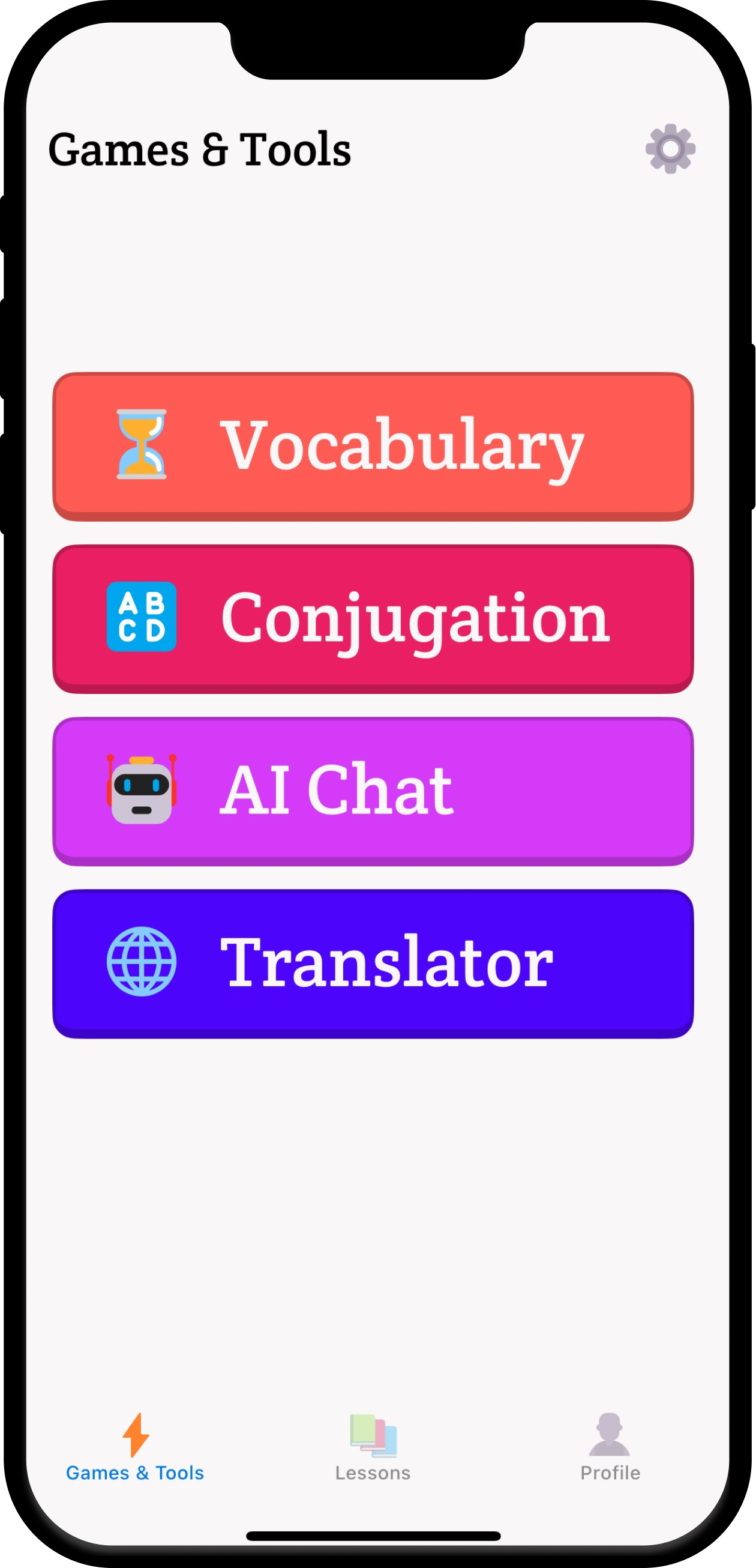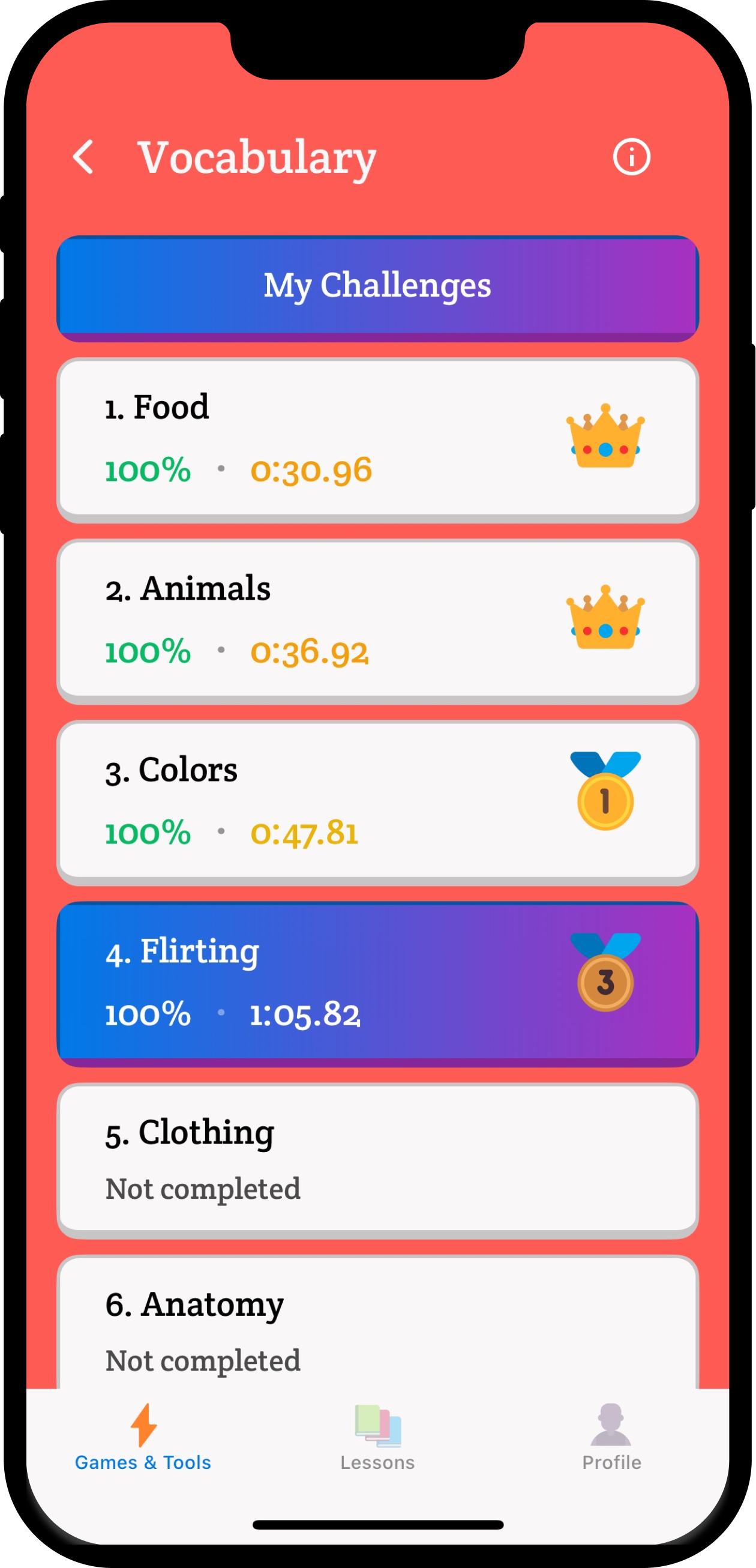How Gamification Makes Learning a New Language Faster and More Fun

How Gamification Makes Learning a New Language Faster and More Fun
We've all been there. You download a language app, full of excitement to finally learn Croatian or Vietnamese. The first few days are great, but soon, the novelty wears off. The tediousness of memorizing verb charts and vocabulary lists sets in, and your motivation plummets.
Ready to Learn More?
Try PolyChat's interactive language learning games and put your new vocabulary to the test!

Games & Tools
Essential tools for every learner

Timed Challenges
Practice vocabulary & conjugation

Interactive Games
Learn through engaging gameplay
What if there was a way to bypass this slump? A way to make language learning feel less like a chore and more like a game? That's where gamification comes in. It's the secret sauce that can make all the difference in your language journey, and it's the core philosophy behind Polychat's "funner, faster way to learn languages."
What Exactly is Gamification?
Gamification is the process of adding game-like elements—like points, levels, competition, and rewards—to activities that aren't typically games. It's not about just playing games; it's about applying the psychological drivers that make games so addictive and engaging to real-world tasks, like learning.
Think about it: what makes games so compelling?
- A clear sense of progress.
- Instant feedback on your performance.
- Achievable goals that lead to a feeling of accomplishment.
- A compelling and fun environment.
These are the very things that are often missing from traditional learning methods.
The Science of Fun: How Games Hack Your Brain
The reason gamification works so well comes down to a bit of brain chemistry. When you complete a challenge, earn a reward, or even get positive feedback, your brain releases a small amount of dopamine, a neurotransmitter associated with pleasure and reward.
This creates a "feedback loop." Your brain wants more of that rewarding feeling, so it encourages you to repeat the action. By tying language learning to this loop, gamified apps motivate you on a subconscious level. It's not about tricking you into learning; it's about aligning the learning process with your brain's natural reward system.
Why Gamification is a Game-Changer for Language Learning
-
It Skyrockets Motivation: One of the biggest hurdles in learning a new language is staying consistent. Gamification tackles this head-on by creating a cycle of achievement. Earning points for correct answers, maintaining a daily streak with a satisfying "cha-ching," or moving up a leaderboard provides a steady stream of positive reinforcement that keeps you coming back for more. These small wins make the monumental task of learning a language feel manageable and rewarding.
-
It Makes Practice a Habit: Language learning requires consistent, daily effort, which is where motivation often fails. Game mechanics like daily quests ("Complete 3 lessons to earn a gem!"), push notifications that remind you to maintain your streak, or login bonuses build a powerful feedback loop. These systems help transition the act of studying from a decision you have to make into a satisfying daily habit you don't want to break.
-
It Provides Instant, Low-Stakes Feedback: In a traditional classroom, you might wait days to get a test back, and the feedback can feel judgmental. In a gamified app, you know instantly if your answer was right or wrong through sounds, colors, and animations. This immediate feedback helps reinforce correct patterns and correct mistakes before they become ingrained. It also lowers the "fear of failure," as making a mistake in a game feels like a normal part of the process, not a critical judgment.
-
It Makes Learning Genuinely Fun: This is the most obvious benefit, but it's also the most profound. When learning is fun, you're more likely to do it for longer periods and retain more information. Polychat's "Game Variety" is a perfect example. Instead of just drilling flashcards, you're actively playing engaging games that are secretly designed to boost your vocabulary, improve your listening skills, and solidify grammar rules without feeling like work. You're learning through play.
The Polychat Approach: Learning That Feels Like Play
At Polychat, we believe that fun and effective learning are two sides of the same coin. Our app is built from the ground up on the principles of gamification.
- Our "ever-expanding collection of engaging games" is designed to make every interaction a delightful and effective learning opportunity.
- Our "hundreds of carefully crafted lessons and interactive tools" are integrated into a rewarding progression system that keeps you motivated and aware of your progress.
- Our entire experience is designed to help you master any of our "15+ languages" by making your learning journey feel less like work and more like play.
The next time you try to learn a language, don't just look for an app with the most words or lessons. Look for one that understands how to keep you motivated and engaged. By turning the hard work of learning into the fun of a game, you'll not only learn faster—you'll enjoy the process a whole lot more.
Ready to play your way to fluency? Download Polychat today!
Related Posts
A Beginner's Guide to Swedish 'Fika' Culture (and the Vocab You Need)
Understanding fika is a delightful window into the Swedish soul. Learn about this cherished tradition and the vocabulary you need to partake in it.
Read moreTop 10 Language Learning Tools to Help You Become Fluent
Discover the best tools to help you on your journey to language fluency, from conversation practice to vocabulary builders.
Read moreHow Interactive Games are Transforming Cultural & Travel Content
Discover how embedding interactive language games can double your website's engagement, lower bounce rates, and turn passive readers into active participants.
Read more